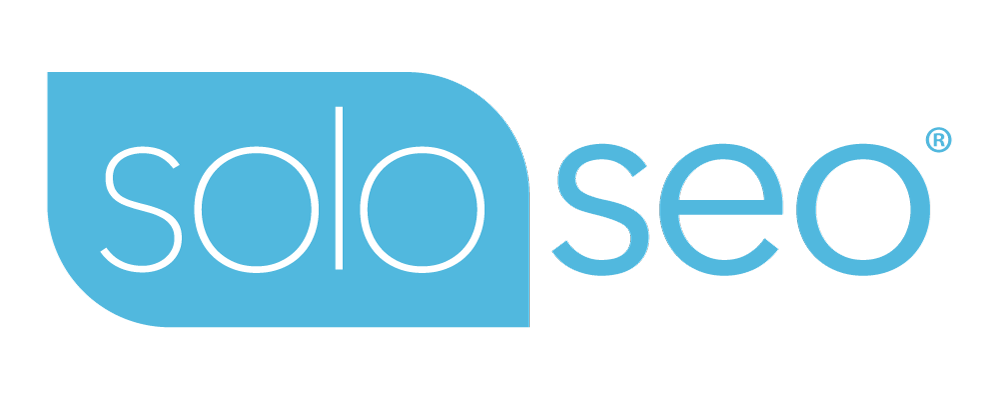We’ve all typed something in a search engine and the first thing we see is “did you mean…” and then an alternative to what we typed. Obviously it can be helpful, unless of course it gets in the way of your branding.
 If you type in “soloseo” in Google, the suggestion is “colosseo” (that’s Italian for Colosseum). I’ve been to the “Colosseo” before, and it is impressive, but what about my site? Clearly there is a domain that matches the exact spelling. With Web 2.0 naming “conventions”, we have lots of misspellings, or words that are offshoots of other words (create your own). For example, “Digg”, “Odeo”, “Clusty”, “Etsy”, “Goowy”, “Listal”, “Squidoo”, and “Topix”. None of these are real words, and some of these could easily be misspelled from other words (Dig, Rodeo, Clumsy, Itsy, Gooey, List all, Squid [eww], and Toe Picks [j/k]). But search for these on Google…no “did you mean” suggestions.
If you type in “soloseo” in Google, the suggestion is “colosseo” (that’s Italian for Colosseum). I’ve been to the “Colosseo” before, and it is impressive, but what about my site? Clearly there is a domain that matches the exact spelling. With Web 2.0 naming “conventions”, we have lots of misspellings, or words that are offshoots of other words (create your own). For example, “Digg”, “Odeo”, “Clusty”, “Etsy”, “Goowy”, “Listal”, “Squidoo”, and “Topix”. None of these are real words, and some of these could easily be misspelled from other words (Dig, Rodeo, Clumsy, Itsy, Gooey, List all, Squid [eww], and Toe Picks [j/k]). But search for these on Google…no “did you mean” suggestions.
What’s different about our brand, SoloSEO, compared to these (besides the obvious of extreme popularity)?
Here are my notions as to what may contribute:
1. Presence
When you outmatch the total results for the “did you mean”, that may be a definite pass. Compare “dig” to “digg”, and interestingly “digg” has more results. Perhaps though, this is because “dig” is so general and “digg” is not, so they actually include all content that points to “digg” but only the “top” few million content/links that use the word “dig”. “Topic” wins out in results over “Topix”, as do all the others from the example above, so “digg” may be just special. Could it be there is some threshold of “presence”, even if it doesn’t outnumber the “did you mean”?
2. Link Juice
If you have enough links to your site with the “branded” name included, this may set you free. The majority of links coming to SoloSEO right now (mostly from our launch) is with the anchor text “SoloSEO”, so it hasn’t worked yet, but maybe it will later.
3. Content and Topic
Obviously your own content (and thus topic) includes your name, but what about those who link to you? My guess would be that the aggregate power of those who link to you within the same topic would produce an effect that would be able to overpower the “did you mean” syndrome.
4. Popularity and keyword searches
Google (et al.) knows when people are coming to your site, and what keywords it takes to get there. Give it time and traffic, and my guess is you’ll overcome the “did you mean” virus. If people start typing “soloseo” and then click on “soloseo.com” instead of the “colosseo” link, my guess is we will be closer to removing that. Search engines are the new “interface”, we don’t even have to remember domains anymore, just search what you think and you should find it.
To sum it up, I don’t know. But my guess is… 1) Presence, 2) Links with your brand in anchor text, 3) Topic/Content group linking to you, and 4) Traffic from keywords.
How do you get past it? Have a better product that naturally produces online word of mouth, increase your link building, produce great content (even Web 2.0 user-generated content), and use other marketing (online and off) strategies to pull in traffic and search queries. Nothing too new, but it is certainly important to remember all of these components.
If you have more suggestions, please comment below. And, if you have found some interesting “did you mean” cases, I’d love to hear about those too.
 In thinking about this I rounded up some other search engine fun with our name. If you go to Alexa and search for soloseo.com, the suggestion is… “solosexo com”. I’m not sure what that means, but it doesn’t sound like any suggestion my company wants to give out!
In thinking about this I rounded up some other search engine fun with our name. If you go to Alexa and search for soloseo.com, the suggestion is… “solosexo com”. I’m not sure what that means, but it doesn’t sound like any suggestion my company wants to give out!
BONUS FUN – Have some fun for a minute and search Google for “gooogle” (yes, 3 o’s). You’ll see Google suggests “google”. If you go to Yahoo you have to get up to “gooooogle” before they give you a suggestion. Live.com gives you a suggestion with “gooogle” but not anything further. Back on Google, start with “gooogle” then keep adding o’s and you’ll see different points where you get a suggestion (3, 4, not 5 or 6, 7 and 8 [suggests 6], 9 and 10 [suggests 11], not 11 or 12, 13 [suggest 12], and so on).



